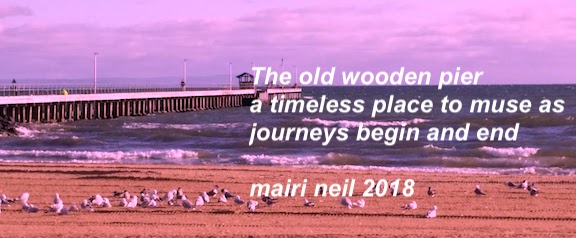
The Twelve Days of Christmas
The popular song aside, traditionally the ‘twelve days of Christmas’ is the period that Christian theologians mark the time between the birth of Christ and the coming of the Magi, referred to as the three wise men.
It begins on December 25, Christmas Day and continues to January 6, the Epiphany. For many people that is also the day they take down the Christmas Tree and put the decorations away for another year. Some people do this on January 5th others January 6th.
I can smile now remembering the first discussion my late husband, John and I had about this – I brought up Church of Scotland and non-conformist and he, brought up Church of England (Anglican rather than Episcopalian).
Although born in Australia, John spent the early part of his life in England and Christmas traditions ingrained. As a Scot whose household celebrated Hogmanay, Christmas was low key, centred around the Church:
Christmas Day only became a public holiday in 1958, and Boxing Day in 1974. The New Year’s Eve festivity, Hogmanay, was by far the largest celebration in Scotland.
Emigrating to Australia in 1962, the hot summers didn’t do anything to increase my enthusiasm for some traditions – especially ones involving Yule logs and roast dinners!
Back to the ‘Twelve days’ …
John said the tree had to be down and decorations packed away by January 6th, whereas I believed you left it up until January 6th. A ridiculous debate put in perspective the year my sister divorced her horrible first husband. She left her Christmas tree up until Easter because it brightened the house and welcomed her home with twinkling lights! As good a reason as any to break with tradition…
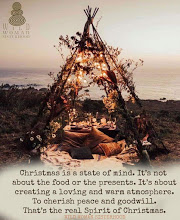
Cate’s unorthodox view remembered this year when she became an unexpected house guest for Christmas because her husband needed an urgent operation and the surgeon could fit him into his list at Frankston Hospital on Christmas Eve.
What would Christmas be without a wee miracle?
Brother-in-law Ian came through with flying colours and Christmas lunch a bigger and more special celebration than usual. The few days Cate and I spent, in and around, the large public hospital, sobering and a glimpse of the Christmas others experience.
It got me thinking that Christmas aside, there are always many people trying to ‘brighten’ the lives of others, dedicating their lives to those less fortunate – they don’t need an excuse, they do their job, follow their heart or beliefs, care about human or animal welfare – we don’t focus on the joy often enough, but absorb the negativity the press pander to – the philosophy of TV News – if it bleeds, it leads…
The nursing staff at Frankston did their best to make the ward festive – I loved the use of medical equipment tarted-up (a rubber ring/doughnut cushion stuck with coloured balls) and tinsel wrapped around trolleys and exercise equipment. But it was the effort of wonderful volunteers dressed as Mrs Christmas and elf helper on a 36-degree day that truly impressed!
We scored a candy cane before they entered the lift!
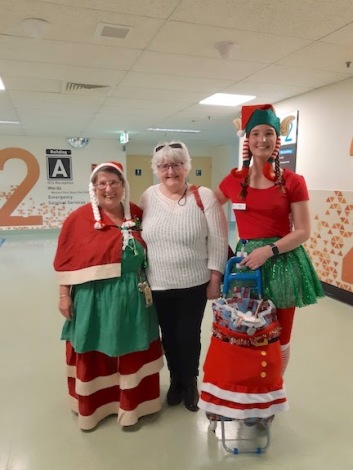
Advent for many Christians begins the four weeks preceding Christmas and each Sunday up to Christmas Eve there will be special sermons and services leading up to the arrival/birth of Jesus.
However, for an increasingly secular society, Christmas begins with a flood of consumerism that reaches fever pitch and a frenzy in December but starts late October/early November…
I wrote a poem about this years ago (pre-computer), can’t find it, but suffice to say it wasn’t complimentary to junk mail or the advertising industry, which help with the humbug factor and not the joy that is found among friends and family, who use the lead up to Christmas for gatherings or tȇte-à-tȇtes.
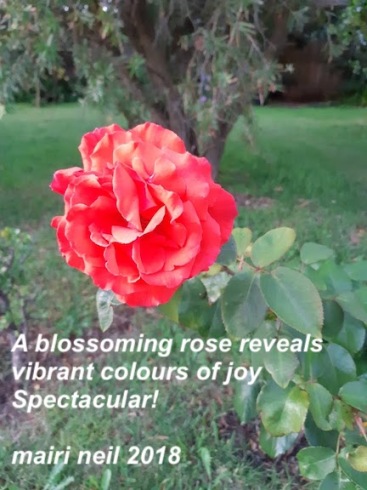 Christmas Catch-Ups
Christmas Catch-Ups
I love this time of year because in many of the cards or emails received there is news of how the year has been for friends and family and people make an effort to get together. Give me a chat and cuppa instead of presents any day because if the person lives far away, or is rarely seen, information other than ‘Merry Christmas’ is good to hear.
Sometimes even if people live close by, the busyness of life leaves meaningful conversation a rarity and so the gift of time to chat, go to the movies or a play is refreshing and food for the soul. Christmas is a great excuse and motivation to invigorate relationships. I get to have a coffee or tea with students outside class – I’m not the teacher or motivator but a friend with all ‘the issues’ that enjoy a good airing when we share what’s in our hearts and minds.
Here I am with Elhan who came to my class several years ago at Mordialloc. She is an accomplished writer in English as well as Turkish and writes a column for a Turkish newspaper in Melbourne. She took me to a cafe in Mordialloc owned by Turkish Australians, bought me ‘Turkish tea’ served in a cup with the blue-beaded eye motif to protect me from evil, and gifted me an Orhan Pamuk novel.
It’s not a Facebook cliche when I write I’m truly blessed with the people who have come into my life through teaching and writing!
I’m transitioning to retirement but some of my friends are already enjoying more leisure time. I went to see a dear friend Uma and husband Kevin who live at Bulleen. It was lovely to have lunch in their home instead of catching up with Uma near her office in the city – our usual Christmas rendezvous.
It was an hour and a half’s journey by public transport – train to Southern Cross and then another to Heidelberg Station – but a relaxing journey that introduced areas of Melbourne I rarely visit. However, visiting will be a lot easier when the Andrews Government’s fantastic infrastructure program is complete. Looking at a time when they may not want to drive everywhere, Uma and Kevin are thrilled that accessing public transport will be so much easier and provide more choice of mode and destinations because they live near one of the many access points for the outer city loop.
After lunch, we walked to the park at the end of their street and Uma shared stories of her neighbourhood with similar pride when she and Kevin came to Mordi at Easter and we walked the foreshore and I shared where I fill up with serenity!
At the park considering the topic of my last post, I was thrilled to discover The Peace Path!
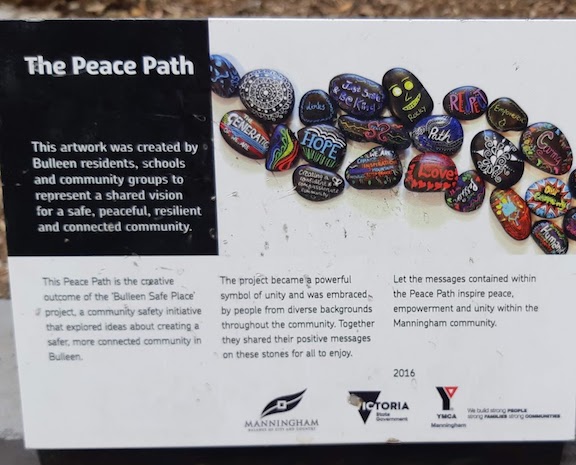
What a wonderful project! We watched families play in the park, school children walk home from nearby schools past The Peace Path, a prominent installation, a daily and fun reminder of diversity and connectedness. Well done Manningham City Council.
New Acquaintances Not Forgot
Many ex-students who perhaps only came for a semester or two also stay in touch and have become valued friends. At this time of year, it’s lovely to hear how they are going with their life and writing projects.
I received a welcome letter from Naoko in Japan and the delightful gift of a book and a very tempting invitation:
“an autobiography by Tomihiro Hoshino. He writes poetries and draws paintings by his mouth. He is from my neighbour town and there is a museum. I would like to take you there. So please come visit me!'”
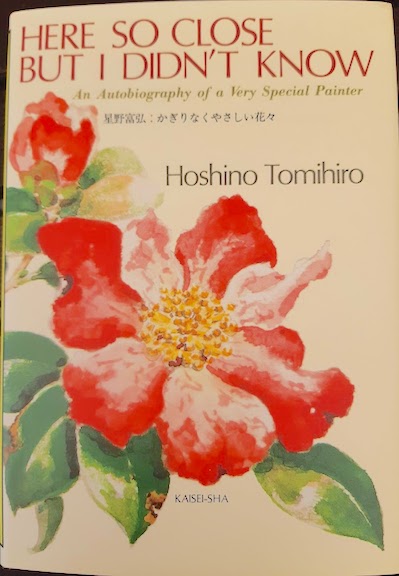
Serendipity!
Naoko doesn’t know that for more than twenty-five years I have bought cards and calendars from Mouth & Foot Painting Artists Australia and hold the artists in absolute awe for the exquisite products and attitude to life.
She does know that I love Japanese poetic forms and their ability to say so much in so few words – most of my classes have been introduced to haiku, tanka, renga, senryu and haibun at some point!
It is not a thick book and translated by Hiroko and Joseph McDermott was an easy read. But it is quite unlike other memoirs I’ve read considering the subject matter. The tone is not ‘poor me’ or bitter and very quickly the focus is how the writer accepted help from others and learned to paint and write with his mouth to bring meaning, purpose, joy and love into his life.
It is an upbeat memoir because yes he even grew to love and marry a faithful nurse ( not always a cliche) and found success as a writer and painter. I understand not everyone with a disability or life-changing accident can be so lucky – but what you learn from the book is that it wasn’t just luck…
His determination and persistence, plus the loyalty, love, and consistent support from those who loved him are powerful elements not only enabling him to survive but thrive.
This First edition published in 1988 is the first of several books from Hoshino who was a high school physical education teacher until an accident in the gymnasium left him paralyzed from neck to toe and hospitalised for nine years.
He was 24 years old and in his prime.
‘I was a physical education teacher. I chose this job, not so much as I was interested in teaching, but as I wanted to keep on doing the sport I had always loved since childhood. This desire was so strong that all day long I would exercise with my students… even after the classes were out, I was running or kicking a ball around until everyone else had gone home and the grounds were empty except for me.’
The first chapter, The Accident (June 1970), is short and to the point with headings:
- Do I Still Have Arms?
- The Face of My Parents
- I Will Not Die
- From the Hospital Diary
He uses extracts from his sister’s Diary to explain the precariousness of his situation, the operations and treatment that ultimately saved his life and put his neck bones into place so he could breathe without a respirator.
“It has been decided that he can sleep without the machine. When the gauze was put back in the hole in his throat, he was encouraged to practice talking with the hole in his throat covered up. Ton-chan (my nickname) smiled happily and said in a strong voice, “The weather’s fine today.” He looked so happy that we all burst into laughter.”
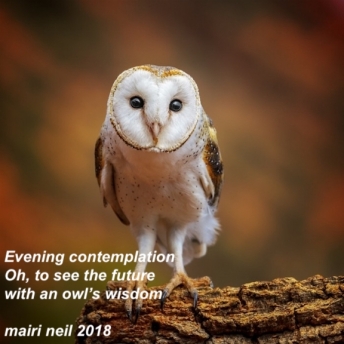
The second chapter is The Joy of Writing and we learn, ‘Two years passed. Some people assumed I had died… I wavered between life and death so many times…’
However, the medical attention and constant support of his mother, brothers, sisters and close friends who take turns to nurse him every day, kept him alive. (His mother devotes her life to his recovery from day one!)
He mentions but doesn’t dwell on despondency and despair. ‘ My body had a life of its own, regardless of my wishes, though I no longer had a deep commitment to life.’
I don’t know anything about the Japanese hospital system but obviously, technology and scientific development since the 70s have changed in much the same way as ours. The treatment of accidents like Hoshino’s would be different and perhaps have different outcomes. Hospital treatments, access, cost and even where the hospital is in Japan is not the focus of the story.
There is a glimpse of how rehabilitation has made great advances when he describes the day a visiting child brought a radio-controlled toy car into the hospital and one of the mothers who was looking after her child who was a patient said:
‘If one child brings a toy like that, all the others want their own. You can’t blame them. If you’re rich, it might be okay. But what about families like ours?… Tears were welling up in her eyes.
It’s nothing to cry over…, I thought, and moved closer to the children… It was like a very clever puppy perfectly trained to perform…
Frankly, I felt like crying for one as well… watching the car race around … a certain sadness crept up over me. If people can make a precision toy like this for children, why should I have to stay on a wheelchair which moves only when someone pushes it? Why couldn’t the scientific knowledge used for such a toy also be used to move a wheelchair?
I also felt tears coming to my eyes…
Electric wheelchairs were available but he needed one specifically designed for people who can only move from the neck up. His wheelchair was actually a motorised stretcher.
In 1979, after two boffins from Suzuki Motors visited him they worked out the power and movement he had in his neck and delivered a wheelchair with a driving lever he controlled with his chin.
‘Everything about the world outside then began to look rosier once I found that people like them were working away at some research that could greatly ease my life…
Now my mother could take long-needed rests while I went out for rides.’
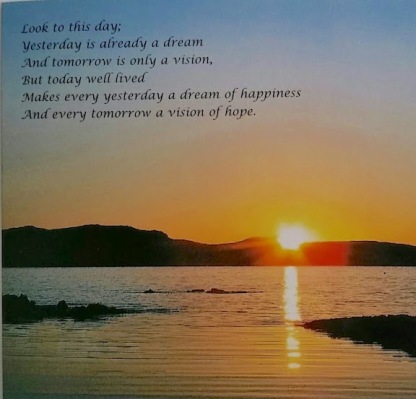
In 2016, I was privileged to help start and facilitate a social group for Glen Eira Council. Over the years, I’ve had several people with ABI (Acquired Brain Injury) in my classes and I was approached to help them start a group where they could meet and discuss everything from literature, movies, politics, philosophy, therapies, culture, and even pet peeves… to relax and ‘Chat ‘N Chuckle’ with others who understood that it may take longer to speak, to listen, and understand what someone wants to say.
Many had motorised wheelchairs – today a variety of mobility aids are common but Tomihiro’s thoughts and perspective gave me a deeper understanding of how important aids are and how innate our need for independence.
An Epiphany
Tomihiro’s electric wheelchair was a long time coming and despite his mother’s relentless devotion it was often the interaction with others that gave that much-needed spark not to lose hope.
Sharing a room with a seriously ill ex-student from his junior high school who always had a cheerful smile made Tomihiro feel obligated to smile too along the lines of ‘fake it till you make it’.
The relationship that developed between master and student a turning point, especially after the teenager was moved to another hospital and his mother visited Tomihiro, bringing a white, tulip shaped hat belonging to her son, Takaku. He wanted his former roommates to write words of encouragement such as ‘don’t give up’ and ‘have patience’.
Tomihiro wanted to write something but crunching a pen between his teeth, could only manage a tiny dot until his mother moved the hat so he managed to write one of the Chinese characters of his name “Tomi” extending the tiny dot into an “O”.
From that tentative beginning and with months of trial and error to find a painless position for his neck, he finally managed to write a single letter by himself:
“The gauze rolled around the pen in my mouth got soaked with saliva. It was also dyed with blood from the gums since I had strained so much while writing. My mother, who was watching from the side of the bed, also clenched her teeth from the strain. There was sweat on her forehead as well…
All of a sudden my life looked bright again… after having experienced the despair that I would never be able to do anything again, I felt from a single line or letter the same thrill I might have experienced setting a new sports record.”
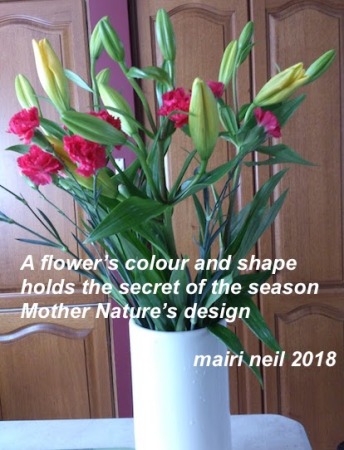
Another person who not only visited Tomihiro but was instrumental in his healing journey and his development as a writer and poet was a friend from university days.
Yoneya… and I would have dinner at the same table and every evening I would watch him say a prayer. I usually sat down with my hands unwashed and started eating … I never wondered to whom or what he was praying, nor why he said a prayer before every meal…
One day, he told me, “I am going to study in a theological school in Tokyo in order to become a minister.”
… I didn’t know exactly what it meant, but I realized what a hard and serious life he had chosen to pursue.
As soon as he heard of my injury he came to see me in the hospital. later he sent me a copy of the Bible with his apology for being unable to do anything else for me for the time being. I kept the book in a box under the bed…
Actually, I had hesitated for a long time before opening the Bible. I was afraid other people around me might think and say, “He must be in such pain to have turned for help even from the Christian God…”
… I tried to think up some excuse to open the Bible: it would help me understand history… pass the time… requite a favor extended by a senior…
… all along I knew very well what I really wanted. In my mind, I had a faint hope that something in this black-bound book might change me, just as it had changed Mr Yoneya and made him feel grateful for even the poor meals served in the university dormitory…
… when I was forced to lie on my bed unable to move or speak, I had to live a life in which every day I had to face the real me. And the real me was not strong, was not a fine person at all…
The Power of Spiritual Awakening
Tomihiro reads the New Testament and he recognises certain verses he has read on graves in cemeteries (St Matthew 11.28-30):
I had not known what they meant. But somehow the words stuck clearly in my mind. Perhaps I remembered them since I was then really “heavy laden,” carrying manure from the pigsty up to the fields.
As I reread this passage over and over, I felt something warm begin to stream out from the depths of my heart…
I felt that God had prepared this passage for me long before I had even dreamed I might have the accident…when there were hard times, did I have a friend I could unburden my heart to, tell my suffering and pains?…
Lying on my back, looking up at the ceiling, I was seized by an intense sense of loneliness. I felt helpless before it… I thought that a person named Jesus might listen to me, might hold me lovingly in his arms…
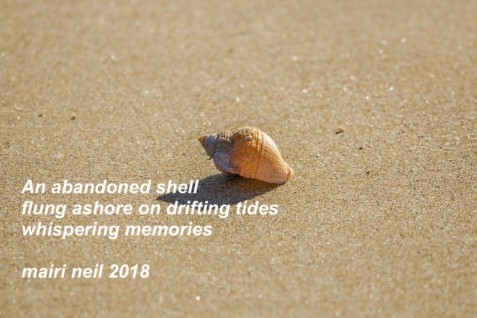
Regardless of whether you follow a particular religion or no religion when people are faced with severe trauma, accident, disease, prolonged illness or near the end of life many may at some point ask one or more thought-provoking questions, maybe go through a period of self-reflection or self-doubt. Perhaps they consider what they took for granted or didn’t really worry about, or search for a belief that gives them inner peace:
What is life about? Is there a reason for it all? Why is life on Earth so diverse – was/is there a ‘design’? Can Science explain everything? Can religion? Is there life after death? Will I ever recover? Why me?
Seeking, and finding peace, if not answers, can be healing.
When my husband was dying we had many philosophical discussions because John was ill for a long time. He became an avid reader and thought more deeply about ideas and beliefs because he had time to digest and think about what he was reading. Time is a great commodity and gift if you use it well!
I remember telling him when various friends or family members added his name to their particular religion’s prayer list, he’d say with his usual cheeky grin, “Good, I read an article and people who are prayed for live longer.”
The night before he died when Father Tony, the local Anglican priest called in and prayed at John’s bedside he said, “and the Heavenly Father is waiting for you, John, to hold you in his arms…”
John’s response, “Prove it!”
We all laughed and Father Tony said, “You have to trust me on this, John!” and at the funeral shared the anecdote from “my friend and pragmatist, John.”
We sang John’s favourite hymn from Royal Navy days, Abide With Me plus Lord of The Dance and he was carried out to The Internationale. If people wonder at the apparent conflict of beliefs I tell the story of the writer/educator, Paulo Freire who was asked, “How can you be a Marxist and a Christian?”
He answered, “No problem for me.”
Life is complicated and what people believe and how they cope with challenges is too. The honesty about Tomihiro’s journey, the authenticity in the telling, kept me reading and will remain with me. The simplicity of his explanation of how enriching the spirit and nurturing other senses can compensate for the loss of limbs and movement.
The Joy of Reading
He too discovered how reading enriches life – the power of story:
I spent a lot of time reading, using a simple device that let me lie on my back and read a book hanging open in front of my eyes. My mother would turn the pages for me.
Reading had not been a habit of mine when I was a child or a student… By reading books while lying on my back, I was able to learn the joy of reading. When nobody was at my bedside, there was no way to turn a page. So I kept reading the same page over and over again for as long as thirty or forty minutes.
After such readings, I would often find something I had never noticed or understood. Some parts deeply impressed me, and I copied them into my sketchbooks…
From his hospital bed, or wheeled into the corridors by his mother, Tomihiro enjoyed being a people watcher but one day he catches sight of a person with a fox fur wrapped around her neck.
This inspires his first poem and more contemplation of not only his personal condition but how humans interact, adapt – what it means to be who we are …
And so entranced by the power of words, he studies, writes, and continually strives to improve his own writing.
In the Hallway
Hoshino Tomihiro (February 20)
A fox
Was watching
With glass eyes,
He was watching.
With the weight of his boneless neck
He was chewing his tail,
And he as watching
Me.
He noted how the glass eyes looked so sad – perhaps they reflected the feelings of his heart? He thought of the word ‘patience’ often used in letters he received. When he saw the fox transformed into neckwear, he sensed he saw himself:
I too had been living day after day, with my teeth digging into my body the more I tried to be patient… Why do I still need to hear ‘patience’…?
I haven’t really changed. The person I was before this accident – wasn’t that basically the same person I am today, even if I can’t move? Why then should I have to be patient with myself? Why should I live day by day with my teeth clenched?
Something did not make sense…
CROWN-OF-THORNS
Hoshino Tomihiro
When you can move but
must stay still,
You need endurance.
But when you’re like me,
And cannot move,
Who needs endurance
Stay still?
And soon enough,
The thorny rope of
endurance
Twisted round my body
Snapped off.
At this time, Miss Watanabe, a friend of Mr Yoneya’s visits, a Christian too, she cared for her bedridden father for many years. From her first visit, Masako never misses a Saturday and eight years later they marry and return to live in Tomihiro’s home district near his parents. The blossoming of their relationship and her encouragement of his writing and art the impetus for his first major exhibition.
Flowers Helped Him Bloom
When lying in bed, it was the flowers visitors brought that Tomihiro fixated on – they were beautiful, they were close at hand, and for a long time they represented the outside world he missed. Not surprising they were the first subjects he tried to draw.
When spring comes, the hospital garden is full of beds of blossoming flowers. And when I see them in bloom alongside my window my heart cheers up, even though I have to keep lying in bed… even if I feel depressed with all sorts of worries about my physical problems, all the trees outside may be in bud and even small weeds in bloom…
Regardless of what each human being may feel, the seasons go round and round in the flow of time. We may be happy or sad, become even angry and hateful… but what tiny creatures we are in the vast universe of nature!
There were always some flowers at my bedside brought by visitors and arranged in a vase by my mother. Lying on my back, I saw them day and night out of the corner of my eyes…
CHRYSANTHEMUMS
Hoshino Tomihiro
For over six years
Mr Kobayashi has been coming
To see me
With flowers.
The flowers he grows
Are as strong
As the weeds in the field
Sometimes even generously hosting bugs
Such flowers
I like most.
His flowers come
Wrapped in newspaper
On which there are left
His fingerprints.
COLUMBINES
Hoshino Tomihiro
Even a flower
When praised
Begins to look nicer,
Someone said so,
I remember.
Then I began to wonder
With fear,
If the flowers
Were looking at my painting.
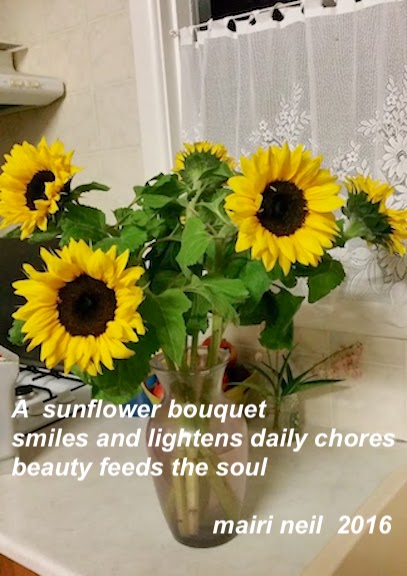
My favourite part in Tomihiro’s awakening and rebirth is when he writes about his mother. This woman deserves her own memoir! For the nine years, he was in the hospital she was with him, leaving the farm and village life in her husband’s care.
Tomihiro describes a New Year in the hospital when some patients and many staff have left for holidays. Those left decided to have a party.
All the attendants sat down together for tea on a straw mat spread in the center of the room. Normally, everybody in the hospital had to sit on a chair, not on a Japanese mat, as they did at home… my mother and the other attendants felt more relaxed squatting…
… I could not join them on the mat, but… I felt as if I was back home sitting on a mat with my mother.
They decided to have a singsong, taking it in turns –
While I was singing, I was worrying about my mother. She was to sing after me, and I had never heard her sing before. Can she sing a song? Does she even know a song to sing?…
Her turn came. She said, “I can’t really sing,” and begged the next person to go ahead. But nobody would… my mother began to sing… in a shy, thin voice… an old song I had never heard before.
… the trembling in her voice died away, and her timbre became stronger and stronger…
I was amazed. My mother, her face as shy as ever, now looked so different to me… the mother I had just seen singing was her real self. I had simply never noticed…
She must have known many songs in her youth. Busy with bringing up children and farming, however, she must have forgotten, before she was aware of it, that she could sing.
While she worked in the small muddy family plot, doing side jobs for a small extra income well after the children had fallen asleep, and bringing us up without buying anything for herself, she must have forgotten about pleasures for herself…
I had never asked what she might want. She must have longed to take a trip or to buy some books to read. Or, even right at this moment, she might be thinking how much she would like to welcome in the New Year with my father back home…
The more I thought, the more ashamed I felt of myself. I had been concerned only about myself, thinking I alone had suffered from this injury…
I love this poem he wrote –
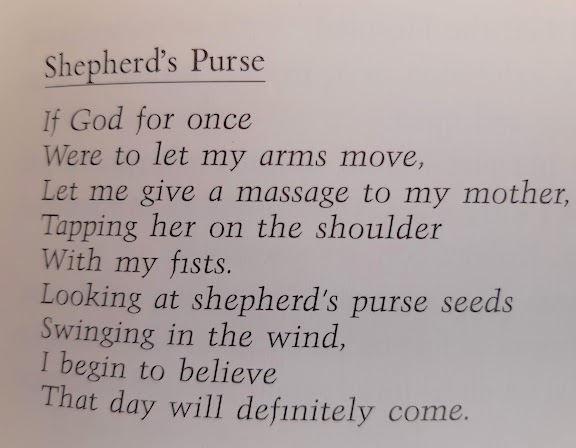
and this honest observation:
“When I was young and healthy, I used to feel very sorry for the handicapped. Sometimes I even felt uncomfortable when I saw them. While going around in my wheelchair, however, I learned something I had not noticed at all before. I was physically handicapped but I was not unhappy, nor did I dislike myself.”
It is all about perception and attitude. He explains it beautifully in a poem about a roadside flower whose Japanese name means poison and pain. He used to hate the flower because of its strange smell and preference for dank places.
Dokudami (Houttuynia)
Hoshino Tomihiro
Someone comes
And picks you up with care.
You have been scorned and despised
They all say you stink
You have been living very quietly
In this small nook along the road,
Looking up at the feet
Of passers-by,
As if waiting for someone to come to you
And need you.
Your flowers
Look just like white crosses.
The title of the book is a line from one of his poems written about the same common weed – it too suggests the mind can always be a little more perceptive and appreciative of the world we live in.
HOUTTUYNIA CORDATA
Hoshino Tomihiro
I didn’t know
How beautiful you were.
Here so close
But I didn’t know.
A book can be the gift that keeps on giving.
A good thought to end the year on and welcome 2019.
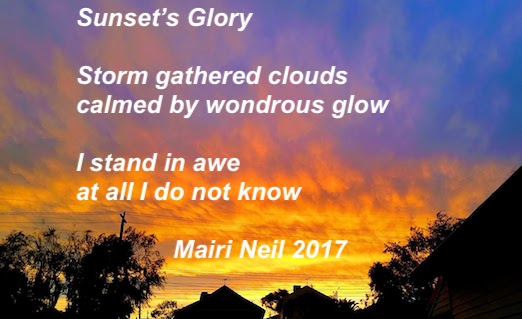










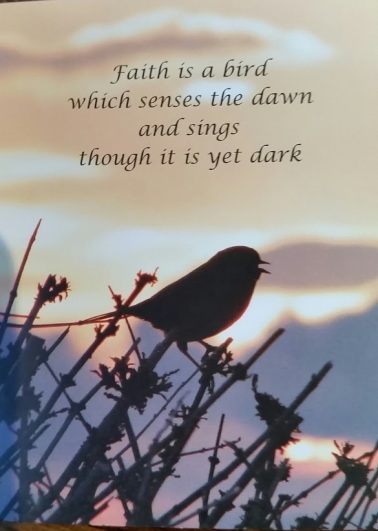
This was just what I needed no, Mairi. I’ve come in from a hard slog in the garden, pruning back the waxmallow which is threatening to take over the pavement as well as my front garden, and my back was feeling a bit sorry for itself.
It’s always good to have things put in perspective by a wise friend. Happy New Year to you and your lovely girls, Lisa x
LikeLike
Happy New Year to you and Tim Lisa and thank you for reading. Commiserations re back and gardening! The combination of the extra rain and sun has given us all work to do outside and it’s green bins this week so I better pull my finger out too and pull some weeds!
LikeLike
Happy new year to you too, Mairi. No sore heads here today as we spent a quiet night watching our new favourite talking head Simon Schama on TV. We didn’t even realise it was new year until all the neighbourhood dogs starting barking!
LikeLike
Living so close to the beach we had car doors slamming early and then the fireworks. My quiet night at home with a new jigsaw while playing traditional music shared between calming Aurora and counting the hours till the explosions stopped! I’d like to think it will be another 12 months but Australia Day there are you as lot fireworks too – not sure if legal or illegal but happens. Am I sounding like a grumpy old woman yet? 😘
LikeLike
Ah well, the good thing about getting older is that the fireworks don’t seem so loud…
LikeLiked by 1 person
Happy New Year Mairi. Your reflections are always an antidote to my grumpiness. I love Christmas, though with so many of us working away we have often celebrated Annual Family Day however named days or weeks late. One year I was to spend ‘Christmas’ dinner with a mate’s family a week early as he was rostered to work on the day, but instead got stuck in floods at Carnarvon (WA not wherever it is in the UK) and had pud and wine helicoptered in by the SES. Ex-Mrs Legend made the kids (all 35-40) go out drinking on the 30th and stay in for dinner on NYE. It worked very well. Too well, I slept on a mattress under the table. I’m sure there were crackers, but they passed me by.
LikeLiked by 1 person